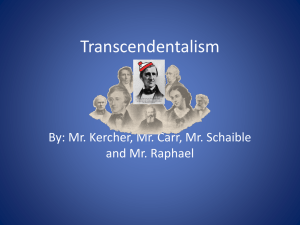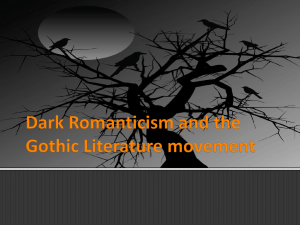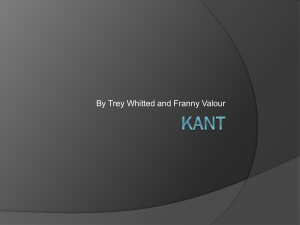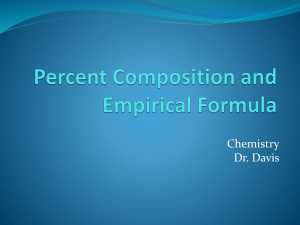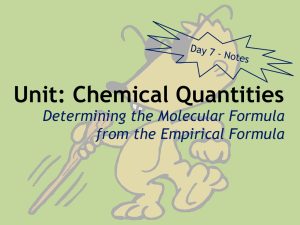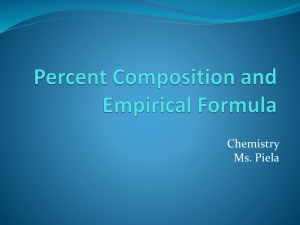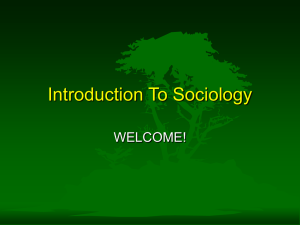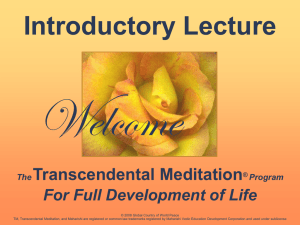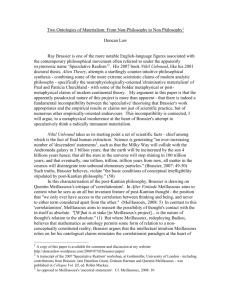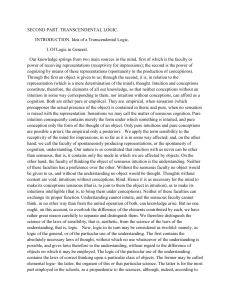objects empirical
advertisement
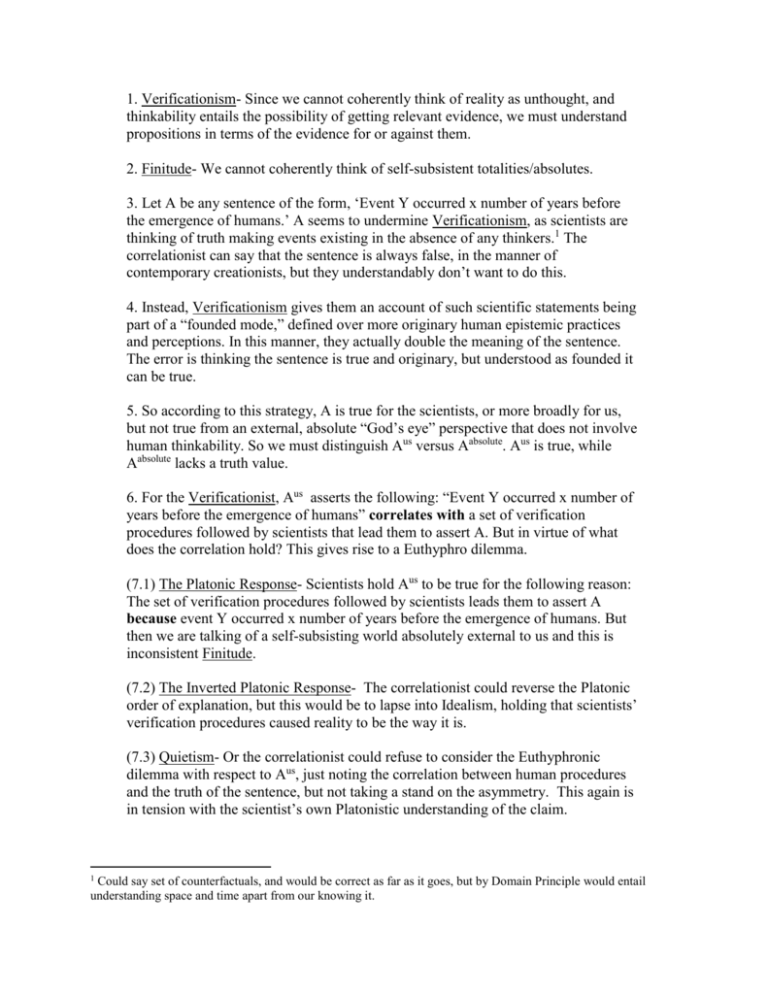
1. Verificationism- Since we cannot coherently think of reality as unthought, and thinkability entails the possibility of getting relevant evidence, we must understand propositions in terms of the evidence for or against them. 2. Finitude- We cannot coherently think of self-subsistent totalities/absolutes. 3. Let A be any sentence of the form, ‘Event Y occurred x number of years before the emergence of humans.’ A seems to undermine Verificationism, as scientists are thinking of truth making events existing in the absence of any thinkers.1 The correlationist can say that the sentence is always false, in the manner of contemporary creationists, but they understandably don’t want to do this. 4. Instead, Verificationism gives them an account of such scientific statements being part of a “founded mode,” defined over more originary human epistemic practices and perceptions. In this manner, they actually double the meaning of the sentence. The error is thinking the sentence is true and originary, but understood as founded it can be true. 5. So according to this strategy, A is true for the scientists, or more broadly for us, but not true from an external, absolute “God’s eye” perspective that does not involve human thinkability. So we must distinguish Aus versus Aabsolute. Aus is true, while Aabsolute lacks a truth value. 6. For the Verificationist, Aus asserts the following: “Event Y occurred x number of years before the emergence of humans” correlates with a set of verification procedures followed by scientists that lead them to assert A. But in virtue of what does the correlation hold? This gives rise to a Euthyphro dilemma. (7.1) The Platonic Response- Scientists hold Aus to be true for the following reason: The set of verification procedures followed by scientists leads them to assert A because event Y occurred x number of years before the emergence of humans. But then we are talking of a self-subsisting world absolutely external to us and this is inconsistent Finitude. (7.2) The Inverted Platonic Response- The correlationist could reverse the Platonic order of explanation, but this would be to lapse into Idealism, holding that scientists’ verification procedures caused reality to be the way it is. (7.3) Quietism- Or the correlationist could refuse to consider the Euthyphronic dilemma with respect to Aus, just noting the correlation between human procedures and the truth of the sentence, but not taking a stand on the asymmetry. This again is in tension with the scientist’s own Platonistic understanding of the claim. 1 Could say set of counterfactuals, and would be correct as far as it goes, but by Domain Principle would entail understanding space and time apart from our knowing it. 8. Perhaps a Kantian defense can save the scientist’s understanding of A by differentiating two levels of thought. (8.1) The empirical level where the subject is just one object among others and (8.2) the transcendental level which is a set of conditions of cognition that render assertions such as A meaningful (here the subject mentioned in A is understood empirically, as an object among other objects). On this reading, A has a truth value as a claim about the empirical subject (i.e. “Event Y occurred x number of years before the emergence of human beings (understood as empirical objects)” The transcendental subject provides the conditions for thinking A, such as determining which bits of evidence would count for or against A. 9. But the empirical/transcendental distinction will only work for the correlationist if there are good reasons not to apply A to the very transcendental subject who is asserting A, “Event Y occurred x number of years before the emergence of human beings (understood as transcendental subjects).” 10. Therefore, the transcendental subject is as susceptible to Finitude as is the subject considered as an empirical object. And thus, the correlationist can still make no sense of A. Add to justification? : The charge is that Meillassoux ignores the transcendental subject, and that he “cannot claim that [the] problem is ‘ontological’ rather than empirical, since [the] problem of the arche-fossil is empirical, and only empirical – it pertains to objects” (2008a: 23). Thus, for the empirical subject, Aabsolute cannot have a truth value, but for the transcendental subject, Aabsolute can have a truth value. Add to justification: Meillassoux’s response, which involves denying the transcendental nature of the transcendental subject, is that, if the transcendental subject can be said to have a point of view, that is, it can make claims about objective reality, then it takes place in the world. If it takes place in the world, then it must have emerged at some point in time. It then cannot exist outside space and time and is susceptible to the same problem of ancestrality that the empirical subject is subject to and is unable to make claims about events that occurred before its emergence.

